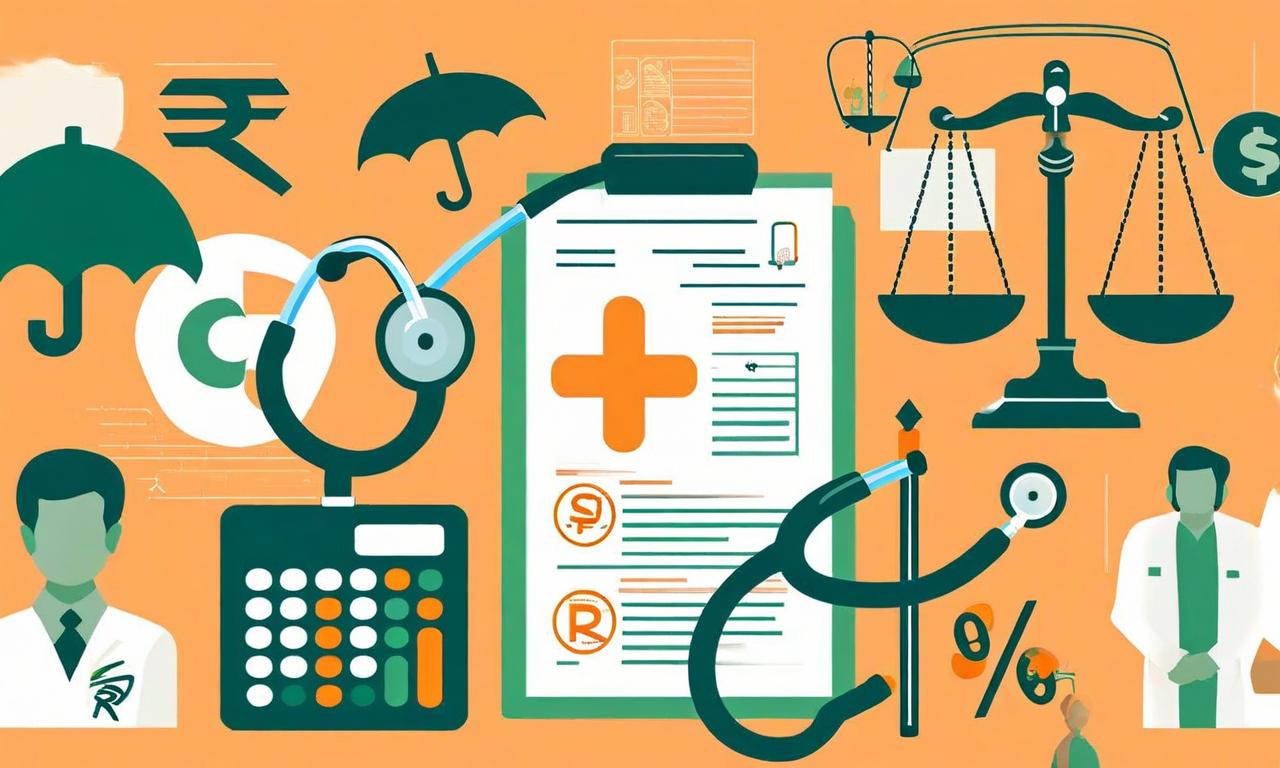GST Exemption on Life and Health Insurance Policies: A Game-Changer for Indian Insurance Industry
The GST Council has decided to exempt individual life and health insurance policies from GST, potentially reducing insurance premiums by up to 15%. This move is expected to make insurance more affordable and increase penetration in India. Currently, insurance premiums attract GST rates of 1.80% to 18.00%. Industry leaders from companies like Niva Bupa, IndiaFirst Life Insurance, HDFC ERGO, and Bajaj Allianz have welcomed the decision. However, insurers will lose Input Tax Credit benefits, which could increase their net costs by 5.00-7.00%. Analysts suggest insurers might implement modest price increases of 3.00-4.00% in the future to mitigate the impact on margins.

*this image is generated using AI for illustrative purposes only.
The Indian insurance landscape is set for a significant transformation as the GST Council announces a pivotal decision to exempt individual life and health insurance policies from Goods and Services Tax (GST). This landmark move is expected to reshape the affordability and accessibility of insurance products across the country.
Impact on Policyholders
The exemption marks a substantial shift from the current scenario where insurance premiums attract GST rates ranging from 1.80% to 18.00%, depending on the policy type. This change translates to immediate cost savings for policyholders. For instance:
- A health insurance premium of ₹10,000, which currently costs ₹11,800 including GST, will be available at its base price of ₹10,000.
- CLSA, a global investment firm, estimates that insurance prices could potentially reduce by up to 15.00% if insurers pass on the full benefit of the GST exemption to consumers.
Industry Perspectives
The announcement has been met with enthusiasm from various quarters of the insurance industry. Executives from leading companies have shared their views:
- Representatives from Niva Bupa, IndiaFirst Life Insurance, HDFC ERGO, and Bajaj Allianz have welcomed the decision, viewing it as a positive step towards increasing insurance penetration in India.
- Industry leaders believe that the move will make insurance more affordable and potentially encourage higher adoption rates among consumers.
Challenges and Considerations
While the GST exemption is largely seen as beneficial, it does present some challenges for insurance companies:
- Insurers will lose Input Tax Credit benefits on expenses such as commissions and claims processing.
- This loss could potentially increase net costs for insurance companies by 5.00-7.00%.
- To mitigate the impact on their margins, analysts suggest that insurers might implement modest price increases of 3.00-4.00% in the future.
Long-term Implications
The GST Council's decision is expected to have far-reaching effects on the Indian insurance sector:
Increased Affordability: The immediate reduction in premium costs is likely to make insurance products more accessible to a broader segment of the population.
Higher Penetration: With lower prices, the industry anticipates an uptick in insurance adoption rates across various demographic segments.
Market Dynamics: Insurance companies may need to recalibrate their pricing strategies and operational models to adapt to the new tax structure.
Consumer Behavior: The increased affordability may influence consumer choices, potentially leading to higher coverage amounts or the purchase of additional insurance products.
As the implementation date approaches, both insurers and policyholders will be keenly watching how this significant policy change unfolds in practice. The move underscores the government's commitment to enhancing financial security for citizens while presenting both opportunities and challenges for the insurance industry to navigate.

























